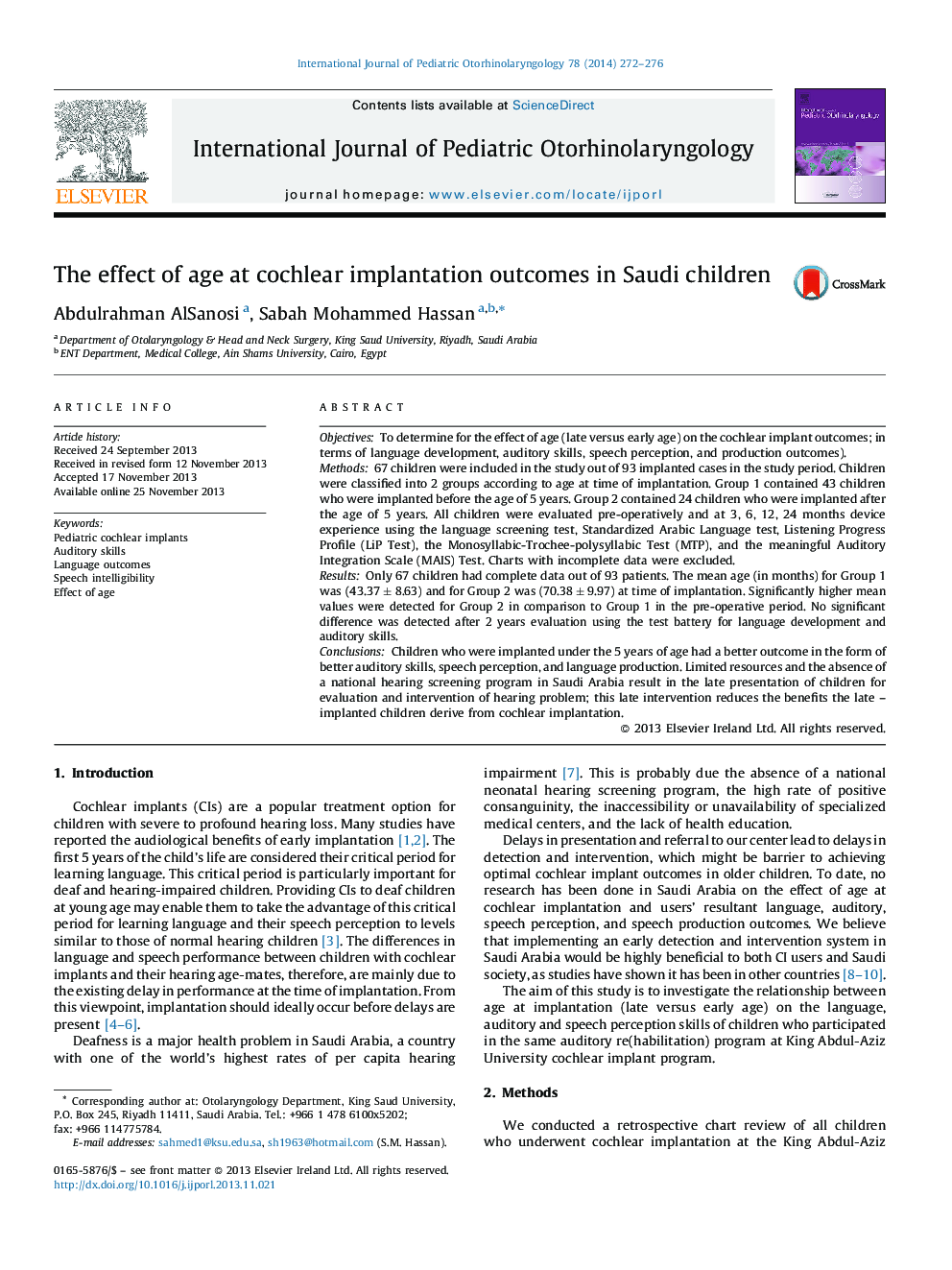| Article ID | Journal | Published Year | Pages | File Type |
|---|---|---|---|---|
| 6213824 | International Journal of Pediatric Otorhinolaryngology | 2014 | 5 Pages |
ObjectivesTo determine for the effect of age (late versus early age) on the cochlear implant outcomes; in terms of language development, auditory skills, speech perception, and production outcomes).Methods67 children were included in the study out of 93 implanted cases in the study period. Children were classified into 2 groups according to age at time of implantation. Group 1 contained 43 children who were implanted before the age of 5 years. Group 2 contained 24 children who were implanted after the age of 5 years. All children were evaluated pre-operatively and at 3, 6, 12, 24 months device experience using the language screening test, Standardized Arabic Language test, Listening Progress Profile (LiP Test), the Monosyllabic-Trochee-polysyllabic Test (MTP), and the meaningful Auditory Integration Scale (MAIS) Test. Charts with incomplete data were excluded.ResultsOnly 67 children had complete data out of 93 patients. The mean age (in months) for Group 1 was (43.37 ± 8.63) and for Group 2 was (70.38 ± 9.97) at time of implantation. Significantly higher mean values were detected for Group 2 in comparison to Group 1 in the pre-operative period. No significant difference was detected after 2 years evaluation using the test battery for language development and auditory skills.ConclusionsChildren who were implanted under the 5 years of age had a better outcome in the form of better auditory skills, speech perception, and language production. Limited resources and the absence of a national hearing screening program in Saudi Arabia result in the late presentation of children for evaluation and intervention of hearing problem; this late intervention reduces the benefits the late - implanted children derive from cochlear implantation.
